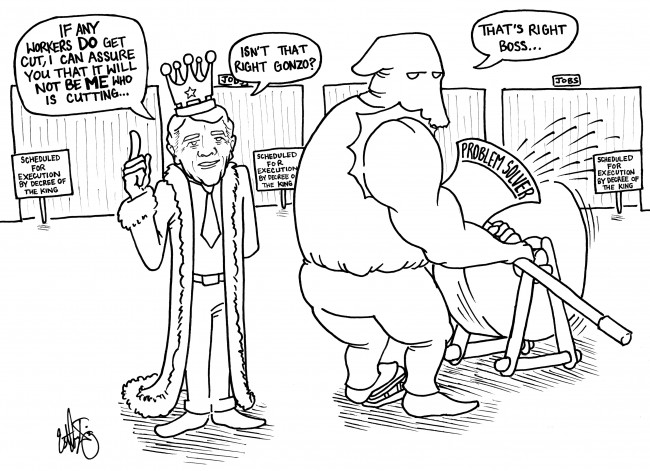While we are all battling rising costs on the collegiate front, the public education institutions, responsible for those in kindergarten through 12th grades are under intense scrutiny as State leaders comb every nook and cranny of state spending for any possible cuts.
Currently, state leaders are looking to cut $9.3 billion of what Texas spends on public education. A substantial cut that, if passed, would certainly cost some Texas teachers their jobs.
“The lieutenant governor, the speaker and their colleagues aren’t going to hire or fire one teacher, as best I can tell,” Governor Rick Perry said. “That is a local decision that will be made at the local districts.” Texas House Speaker Joe Straus said Perry was “technically correct,” according to a piece by Ross Ramsey, the managing editor for The Texas Tribune, a nonprofit news organization in Austin.
It’s low, despicable and unacceptable for state leaders to shove all the responsibility on local governments. Cuts are going to be made; that’s non-negotiable. How much and where are the appropriate questions — and many think the proposed public education cuts run too deep. Perry and Straus purport that this potential budget cut doesn’t necessarily equate to the firing of teachers. Their argument is that if local districts choose to cut teachers in order to stay under budget that is then a local decision and not the state leaders’ fault.
Teachers make up 50.5 percent of the state’s public education employees and take home 61 percent of the money allotted for public education employees.
When budgets are so tremendously slashed, where else can districts turn than to teachers? Entire sections of staff cannot be wholly cut, therefore districts are bound to resort to ending teachers’ contracts. Pinpointing the people responsible for those cuts won’t help the teachers — or students— as much as developing ways to quell the raging cuts will. Perry’s ridiculous statement that Texas leaders won’t be the ones to “fire or hire one teacher” is divisive and nonbeneficial.
Texas’ dual system, balancing state and local leaders, is being tested with these proposed cuts and the key to success is cooperation. Passing the responsibility will not fix anything. Cooperation will.
Aside from the more than $9 billion the state education system is set to lose, its other source of funding — state property taxes — dropped 1.8 percent last year and are predicted to drop another 2.23 percent this year. The value of the public education system is indescribable. Its effects reach far into every aspect of our economy. Public education produces future workers, entrepreneurs who will create jobs, public servants who will maintain our communities and even teachers who will instruct future generations.
The necessity for cuts to state-funded institutions is well understood amid the financial crisis, but have we truly explored the possibilities of higher property taxes? According to Ramsey, the state comptroller estimated a 3.47 percent drop in property value statewide. A new and lower estimate, however, of 2.23 percent adds $400 million back to the education pool.
In politics, raising taxes is the death knell of a politician’s campaign bell, but at this point that stigma must be overcome.
Taxpayers have a large stake in public education and must realize that if we want to maintain the system’s integrity, we may have to increase property taxes across the board.
If we continue to throw blame, pin responsibility and refuse to work toward progress, it is possible the Texas public education system will have to cut many teachers. At that point, we have lost more than teachers. We’ve also lost the students those teachers would have taught. We will have negated the truth that the government is one for, by and of the people.
Selfish habits will have triumphed and we will be left asking: What have the younger generations learned from the leaders charged with protecting their futures? The answer could be nothing.



